
"The Holy Fathers were convinced that the commemoration of the departed by alms and sacrifices (Divine Liturgies) brings great comfort and benefit to them." (SYNAXARION FOR MEAT-FARE SATURDAY)
One of the most venerable traditions in the Church, equally observed in the West as in the East, is the commemoration of the departed in our liturgical prayers. It is the constant teaching of the Church since Apostolic times (cf. Synaxarion) that our prayers, offerings and good deeds can help the departed. St. John Chrysostom (d. 407) in speaking of the faithful departed reminded his people;
…Let us assist them according to our power. Let us think of some advantage for them, small though it be, but let us assist them. How and in what way? By praying for them, by asking others to pray for them, and by constantly giving (alms) to the poor in their behalf! (HOMILY ON PHILL. 3, 4)
It is of great consolation for us, the surviving friends and relatives of our faithful departed, to be able to help them and thus remain united to them by a bond of everlasting love. St. Ambrose (d. 397), preaching at the commemoration of Emperor Theodosius on the fortieth day after his death in 395, consoled his survivors with the words: ... I love the man (Emperor) and I will not abandon him until, by my tears and prayers, I shall lead him into the Holy Mountain of God (Ps. 2:6), where there is life eternal! (FUNERAL ORATION ON THEODOSIUS, 37)
+ + + + + + + + + + + + + +
The custom of offering prayers and sacrifices for the departed comes to us from the Old Testament. Holy Scripture praises the custom as holy and wholesome or pious, as is written in the II Maccabees 12:45: "It is therefore, a holy and wholesome thought to pray for the dead that they may be loosed from sins." In the Catholic Church, the commemoration of the dead is considered as one of the main works of mercy. St. Paul prayed for his devoted friend Onesiphorus that the Lord "grant him mercy" as he stands before God’s judgment seat. (II Tim. 1:18)
All the early Liturgies of the Church, including the most ancient one, the Liturgy of St. James, contain a prayer for the departed. In the Liturgies of St. Basil the Great (d. 379) and St. John Chrysostom (d. 407) prayers for the deceased are also included. St. John Chrysostom interprets this in these words:
…Not in vain did the Apostles order that remembrance should be made of the dead in the awesome Mysteries (i.e. the Liturgy). They knew that great gain resulted to them (the deceased), and great benefit. For when the whole assembly (of the people) stands with uplifted hands and that awesome Sacrifice lies displayed, how shall we not prevail with God by our entreaty for them? And this we do for those who have departed in faith! (HOMILY ON PHILL. 3, 4)
The Apostolic Constitutions (IV c.) prescribed that during the celebration of the Divine Liturgy, the deacon should remind the faithful to pray for the deceased, saying:
Let us pray for our brethren that are fallen asleep in Christ, that God, the Lover of mankind, Who has received their souls, may forgive them every voluntary and involuntary sin, and may be merciful and gracious to them, placing them in the land of righteousness . . . where there is no pain, sorrow or lamentation. (APOST. CONST., VIII, 41)
Therefore, the Fathers of Vatican II rightly decreed that the Church "from the very first centuries of Christianity has cultivated the memory of the dead with great piety" and "offered prayers for them." (cf. Constitution on the Church, n. 50.)
+ + + + + + + + + + + + + +
In the Byzantine Rite, we commemorate the deceased every day at the Divine Liturgy immediately after the Consecration with the petition: "Remember, 0 Lord, all those who have departed in the hope of resurrection unto eternal life N.N…and grant them rest where the light of Your face shines." (Liturgy of St. John Chrysostom)
In our liturgical calendar, Saturdays are dedicated, in a special way, to prayer for the deceased. Following St. John Damascene, the Synaxarion supplies us with this reason: "The Sabbath (Saturday) in Hebrew means rest, since on that day God rested from His work. (Gen. 2:2-3) We make a remembrance of the deceased on that ‘day of rest’ for they are ‘resting’ from all their earthly cares." When commemorating our departed, we constantly implore God to give them eternal rest (0. SI. Vichnyj pokoj) since, according to the Scriptures, to enter into God’s rest means to join Him in an eternal life of happiness. (Heb. 4:3-11; Apoc. 14:13) St. Ambrose explains this by saying: "It is a great rest which fulfills the prayer of the living, a most glorious promise." (Or. on Theodosius, 37)
In accord with this, the Byzantine Church has, since the ninth century, established a special day of prayer for the departed popularly known as "Zadushna Subota" (Gr. Psycho-sabbaton; psyche-soul) which literally translated means Souls Saturday. Since the Synaxarion calls for the "universal commemoration" and prayer for "all the souls departed in the faith," fitingly then, in English, we call these Saturdays—All Souls Saturdays.
+ + + + + + + + + + + + + +
In the Byzantine Liturgical Year there are five All Souls Saturdays namely, Meat Fare Saturday, the Second, Third and Fourth Saturdays of the Great Lent, and Pentecost Saturday.
Meat-Fare Saturday as a special day of prayer for the deceased can be traced down to the sixth and seventh century, the time when the Typikon of St. Saba, known as the Jerusalem Typikon, had developed. The Synaxarion, which is the liturgical description of the feast or commemoration, of this day is based on the oratory treatise, On Those Who Died in Faith, which is ascribed to St. John Damascene. (cf. Migne, PG. 95, 247-278) On Meat-Fare Sunday we liturgically commemorate the Last Judgment (Mt. 25:31-46). Therefore, on the previous day, we, in our charity, intercede with the merciful Judge for the deceased that they be placed at His right hand when He will come to judge the living and the dead.
When the Triodion, the liturgical book for the Easter cycle, was basically compiled during the ninth century, the Second, Third and Fourth Saturdays of Lent were also dedicated to the commemoration of the dead. The reasons for designating these days were: 1. to make up for the a-liturgical days of the Great Lent since in the Liturgy of the Presanctified Gifts, which is prescribed for Lent, there is no commemoration of the dead; 2. to remind us of our own death and make our penitential exercises during Lent more meaningful; and 3. to give us an opportunity to practice good deeds in behalf of our faithful departed and renew our love for them.
On Pentecost Saturday we commemorate "all the departed souls since Adam" (cf. Pentecostanon). By the Descent of the Holy Spirit, commemorated on Pentecost Sunday, the economy of our salvation was completed. Since the will of God is that "all men be saved" (I Tim. 2:4), therefore the day preceding this Feast is set aside as a day of prayer for all the deceased so that they be included in the salutary work of Christ.
+ + + + + + + + + + + + + +
From the beginning of Christianity, local churches kept registers of their living members as well as those who departed. These registers were folding tablets made of wood, ivory, or precious metals artistically decorated with carvings and bound together by rings. They are known as diptychs, taken from the Greek word diptychon, which means anything folded in two. These were used in Church to commemorate the living and the dead at the Divine Liturgy since the fourth century.
In the Byzantine Church, these diptychs played an important role since the names of the heretics and the excommunicated were removed from them and, by the same token, these were excluded from the liturgical prayers. They came into disuse sometime during the fourteenth century and, eventually, they were replaced by official lists of the deceased members of individual families issued by the pastor. These were called Hramoty, from the Greek: grammata, meaning a written letter or document. The list of the deceased members of a family made in booklet form was called a Porn janik, taken from the Old Slavonic: pomjanuti, meaning to remember, and was used at the services for the deceased.
The custom of announcing the names of the deceased during the liturgical services, as stated above, can be traced back to the first centuries of Christianity. Already in the fourth century, the practice was strongly defended by St. Epiphanius (d. 403) as a "firmly established tradition" in the Church. In his Panarios, he writes:
…Concerning the ritual of reading the names of the deceased, what can be more useful or suitable; what can be more worthy of admiration? (PANARIOS 75, 8)
Our ancestors as a part of our beautiful spiritual heritage transmitted this venerable custom to us. Every year, just before Meat-Fare Saturday, the families give the lists of their departed loved ones (Hramoty) to the pastor with the request that they be mentioned at the services held for the deceased on the All Souls Saturday. And St. John Chrysostom assures us that: "It is a great honor to be worthy of mention, while the celebration of the Holy Mysteries is going on." (Homily on the Acts 21, 4) Members of the family are encouraged to attend these services on the All Souls Saturdays for by their presence and by their personal prayers and receiving Holy Communion they strengthen the bond of love with their departed loved ones and indeed keep their memory everlasting!
+ + + + + + + + + + + + + +
St. Gregory of Nazianz (d. 390), after celebrating the funeral services for his brother Caesarius, concluded his eulogy with the following words: "Part of my funeral gift is now completed. The remainder we will pay by offering every year, as long as we live, our honors and memorials for him!" (Oration VII, 17) We also should emulate St. Gregory by remembering our departed loved ones, especially during the All Souls Saturdays, as long as we live, and point out to those coming after us the wholesomeness of this beautiful and praiseworthy custom of praying for and remembering our departed loved ones.
In the burial service according to the Byzantine Rite, the Church places the following words on the lips of the deceased, as we sing the hymns prescribed in bidding our departed loved one our final farewell:
…Come all you that love me and bid me farewell, for I shall no longer walk with you nor talk with you, since I am going to my Judge, Who shows no favors and rewards or punishes everyone according to his deeds. Therefore, I beg and implore all of you, pray for me continually to Christ our God that, on account of my sins, I may not be doomed into the place of affliction, but rather be granted a place where the light of life is shining!
+ + + + + + + + + + + + + + +
PRAYER FOR THE DECEASED
(Ascribed to St. John Chrysostom)
O God of all spiritual and corporeal beings, You trampled death, broke the power of Satan and granted life to the whole world; now, O Lord, grant also rest to the soul of Your departed servant N. in a place of light, freshness, and peace, where there is no pain, sorrow, or mourning. As a gracious God and loving mankind, forgive him (her) every transgression committed by him (her) in word, deed, or thought, since there is no man alive who has not sinned. You alone are without sin and Your justice is everlasting justice, and Your word is always the truth.
For You are the resurrection, the life and the rest of Your departed servant N., O Christ our God, and we render glory to You, together with Your Eternal Father, and Your most Holy, gracious, and life-giving Spirit, now and ever and forever. Amen.
"He (the Priest) acts as an ambassador on behalf of the whole city—even on behalf of the whole world—and prays that God would be merciful and forgive the sins of all, not only of the living, but also of the departed." (St. John Chrysostom, ON THE PRIESTHOOD VI, 4)
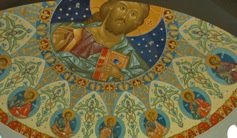

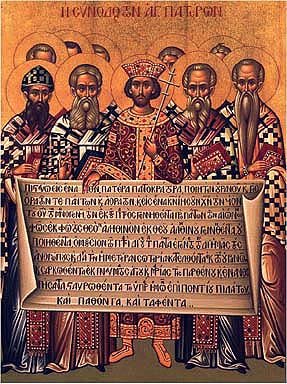

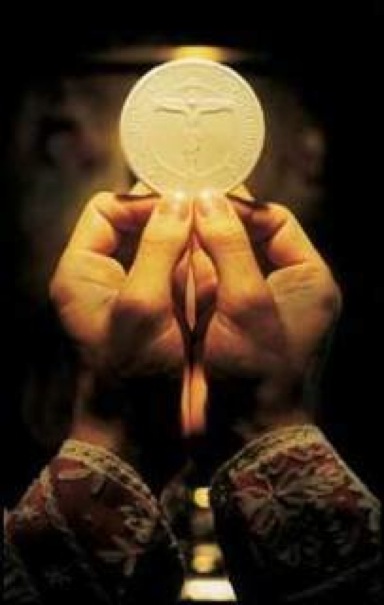


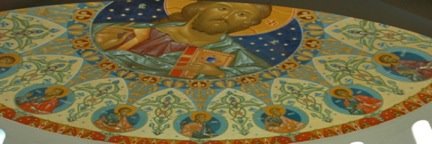
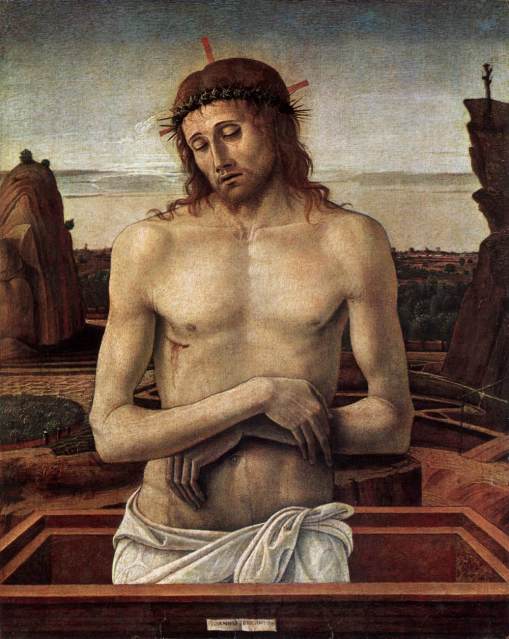
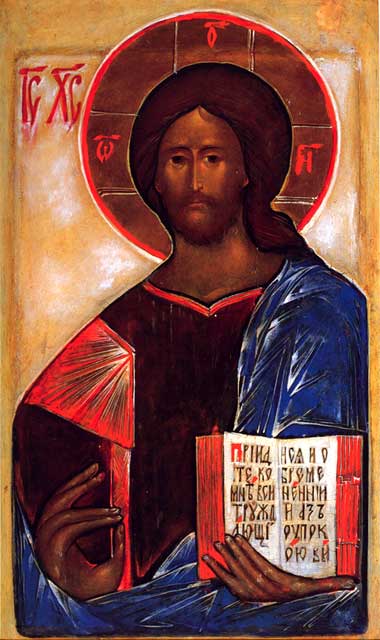




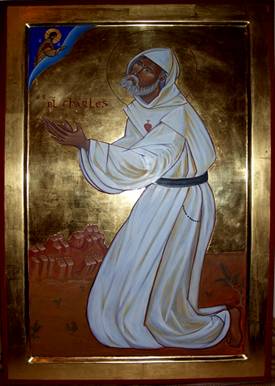




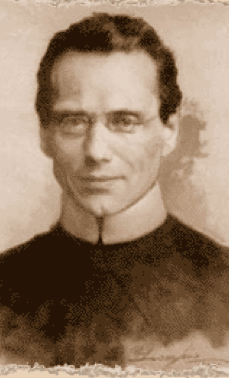
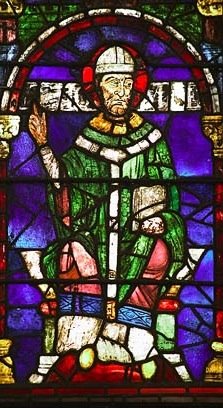
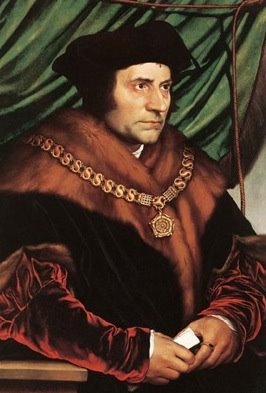
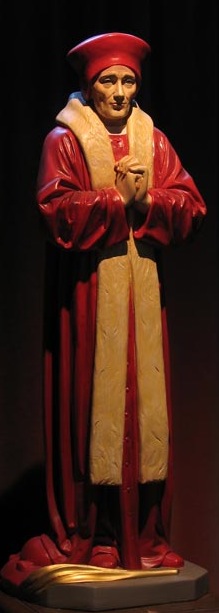

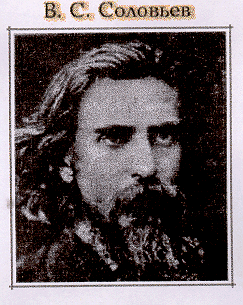


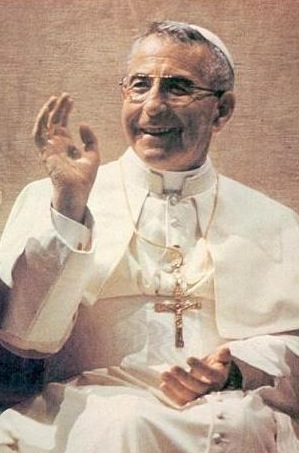
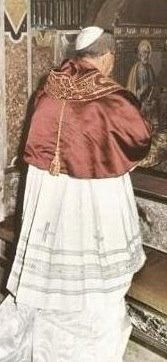
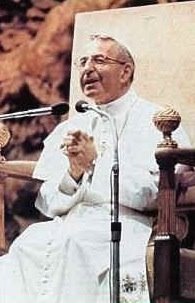







No comments:
Post a Comment